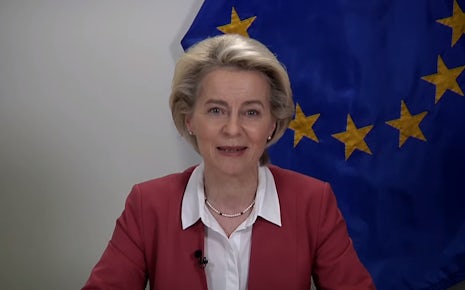– Why do we need a blog on Europe's digital and cyber policies?
To fully realise their strategic value, the EU’s digital and cyber policies need to be better tailored to engage all stakeholders, both in Europe and beyond. To accomplish this, all sides will need to commit to a meaningful dialogue about the ultimate goal of these policies and the pathways to get there. The rationale behind creating Directions is to provide a venue for this type of debate.
The launch of this platform comes at a very peculiar time. Across Europe, people are in confinement due to the COVID-19 pandemic, their homes suddenly also functioning as offices, schools and entertainment venues. Digital technologies and the Internet are making this possible. At the same time, governments, businesses and individuals are already preparing for the months and years of recovery that will follow. Digital technologies and the Internet are also critical elements of these plans for economic recovery and business continuity. The Roadmap for Recovery adopted by European Union leaders in April 2020 makes it clear that digital transformation will play a central role in relaunching and modernising Europe’s economy.
Regardless of the details of these planned reforms and initiatives, one thing is clear: today’s choices about Europe’s digital and cyber policies will be decisive for the future of the European project and Europe’s place in the world. The pandemic has shown us that even the most advanced economies still face challenges and threats to their security. In the age of “geostrategic competition”, leadership is demonstrated not only by flexed muscles but by rolled-up sleeves and a willingness to cooperate globally, and measured by the concrete value brought to the table.
To play a role in steering this transformation, the EU will need to articulate the strategic value of its digital and cyber policies for its citizens as well as its position in the world. This focus on value is intentional. Analyses of EU policies and their international implications often focus on various aspects of “power”. Josep Borrell, the EU High Representative for Foreign Affairs and Security Policy, recently suggested the EU must “relearn the language of power”. But this could be the right time to adopt a new vocabulary, one focused on value rather than power, and demonstrate the value of the European Union and its policies.
Value Beyond Values
The European Union is founded on the values of respect for human dignity, freedom, democracy, equality, the rule of law and respect for human rights. Its policies – including its digital policies – are aimed at upholding and promoting EU values and interests. The EU’s commitment to human rights, rules-based international order and effective multilateralism has earned it the label of a “normative power”. But in today’s world – where many countries seem to be shifting away from the catalogue of norms and values promoted by the European Union – restating the importance of these values is no longer enough. This is not a time for value complacency. The EU must demonstrate its value beyond values – for both domestic and external audiences.
To fully realise their strategic value, the EU’s digital and cyber policies need to be better tailored to engage all stakeholders, both in Europe and beyond. To accomplish this, all sides will need to commit to a meaningful dialogue about the ultimate goal of these policies and the pathways to get there. The rationale behind creating Directions is to provide a venue for this type of debate.
Over the past few decades, the EU has established itself as a leader of digital transformation. In taking steps to create a Digital Single Market that benefits European companies and citizens, the EU has put in place a digital governance model and cyber-related policies that continue to inspire many countries around the world. With its European Digital Strategy, the European Commission, presided over by Ursula von der Leyen, has renewed a commitment to digital transition as one of the EU’s key priorities. However, as the free, open and secure cyberspace model championed by the European Union faces growing external pressures, the EU must do more to engage with and demonstrate its value for European citizens, member states and international partners. The Global Digital Cooperation Strategy currently being prepared is a good opportunity to do just that.
This Is Not ‘Europe First’
While our focus is on the European Union, this is not a call for an inward-looking “Europe First” policy. Quite the contrary. It is a plea for a more strategic, inclusive and unified Europe in the international cyber and digital debates; a call to consider the impact of EU and member state policies within and outside the Union; and an invitation to investigate how developments in other parts of the world can affect the Union’s digital and cyber policymaking. This is an open invitation for experts from across Europe and beyond to be part of a debate about the value of current, planned and not-yet-envisioned EU policies in the Union and globally – as well as the meaning of other national and regional policies for the EU.



